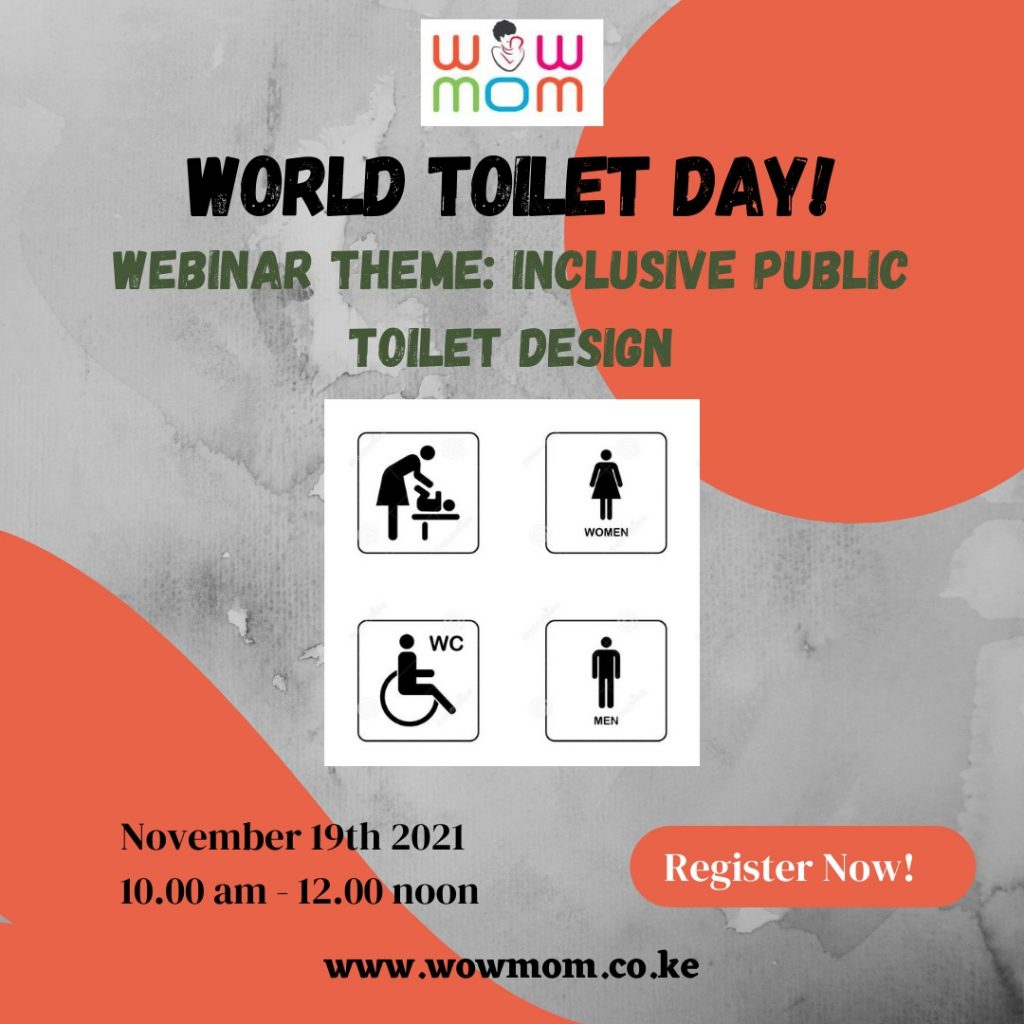Public toilets are essential in meeting the sanitation needs of the public especially when they are away from their homes or workstations. Unfortunately, access to clean and dry, well-lit, and well-maintained toilets that meet the diverse needs of the members of the public including children and persons with disabilities is not always guaranteed. As a result, sanitation and hygiene needs is more often than not compromised
In Kenya, public toilets are largely provided by the government. In Nairobi city, most of the public toilets were built during the colonial era. They are owned by Nairobi City County (NCC) and operated by private individuals or CBOs under Public-Private Partnership in private sector management contracts that are renewed annually. Due to poor management, the public toilets are characterized by a dirty and unhygienic environment, inadequate lighting, poor accessibility, broken water and electrical fixtures, lack of key facilities such as baby changing facilities and sanitary towel disposal bins and inadequate privacy among others. Other than the quality of public toilets, the current number fails to meet the demand of the growing population. The public toilets are characterized by long queues, especially in the women’s toilet. This low supply of public toilets contributes to open defection in the city as evidenced by the heavy presence of human waste and excreta in alleys between buildings and along the streets that further contaminates the water systems.
The UN General Assembly Resolution 70/169 (2015), recognizes that the human right to sanitation entitles everyone, without discrimination, to have physical and affordable access to sanitation, in all spheres of life, that is safe, hygienic, secure, socially and culturally acceptable and that provides privacy and ensures dignity. In meeting the sanitation needs of the members of the public, it’s crucial for public toilet designers to recognize different toilet needs of all users’ i.e men, women, children (including infants and toddlers), elderly, different kinds of handicapped persons including visually impaired and those using wheelchairs. Further, ethnic, social, and cultural needs should be considered. Without well-designed public toilets, disadvantaged groups including women, girls, infants, and toddlers face restrictions to their movement, which reduces their ability to participate in economic, community, and public life. This begs this question, what makes a quality and inclusive public toilet?
About Wow Mom
Wow Mom is social enterprise that advocates for children-friendly cities by bringing to attention policies and plans that plaque children in cities. We believe that children are part of the human race and deserve dignity and their needs must be articulated in decision making in all spheres of life.
About World Toilet Day
World Toilet Day is celebrated on the 19th of November every year. It’s all about inspiring action to tackle the global sanitation crisis and help achieve Sustainable Development Goal 6 which promises sanitation for all by 2030. This year, Wow Mom intends to celebrate this day by invoking discussion around the quality public toilet to inspire action to build more inclusive public toilets that meet the diverse needs soft all users. This will be done virtually on 19th November 2021 from 10:00 Am -12:00 Noon on Zoom. Register here
Webinar Objective
- Assess and address the gaps (quality and quantity) of public toilets at the city and local levels
2. Define the needs of different public toilet users
3. Identify features and provide standards for an inclusive public toilet
4. Outline various public toilet management models
Agenda
| Time | Activity | Facilitator |
| 10:00 AM | Welcome Remarks | Monicah Gichohi-Wow Mom |
| 10:15-10:35 AM | What’s an inclusive public toilet? | Peninah Ndegwa-Wow Mom |
| 10:35- 10:55 | Role of social innovation in addressing children needs in WASH | Duke-Unicef Innovation Accelerator program |
| 10:55-11:15 | Building, Maintenance and management of public toilets in Nairobi | Jane Kagiri-Nairobi Metropolitan Service |
| 11:15-11:45 aM | Panel discussion | Juliet Rita- Chairperson-Architectural Association of Kenya, Town Planning Chapter Jane Gichure/Mercy Wanjohi- Nairobi City County, Department of Children , Gender and Social affairs Kamau.E- Environment department NCC Wafula Nabutola- National Building Code Committee Christian Snoad- UNICEF Moderated by Peninah Ndegwa |
| 11:45-12:00 Noon | Q&A and Closing remarks | Naserian Saruni |


2 Responses